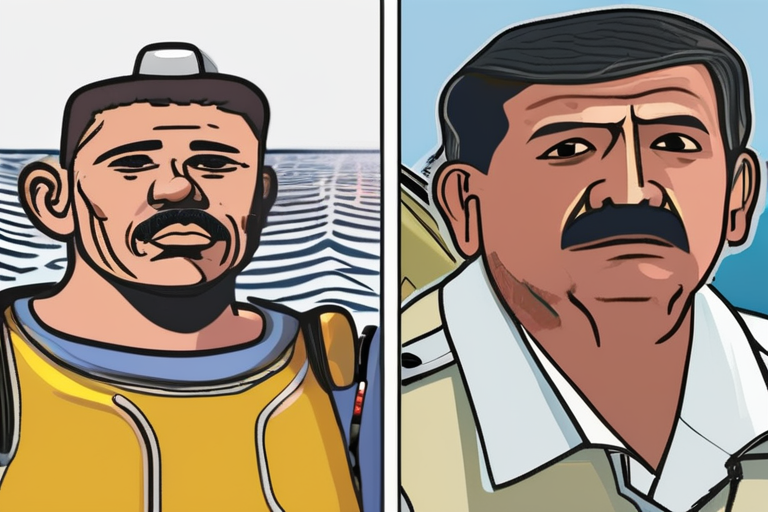U.S. Drone Strikes on Venezuelan Boats Spark Debate Over Excessive Force
In a move that has sparked controversy, President Donald Trump hailed the U.S. military's missile strikes on suspected drug smuggling boats from Venezuela as a blow against narcoterrorists trafficking cocaine and fentanyl. However, critics argue that the strikes are executions without trials, targeting impoverished fishermen rather than high-level traffickers.
According to court records and a study of hundreds of federal defendants, many drug smugglers in the Caribbean Sea are indeed impoverished fishermen hailing from small villages. This profile aligns with local reports about the crew of the first boat targeted by Trump. Sean Murphy, a former federal prosecutor in Puerto Rico who handled dozens of smuggling cases, expressed outrage over Trump's claims.
"Traffickers view the crews of smuggling boats as expendable and will quickly replace them," Murphy said. "By targeting these vulnerable individuals, we're not addressing the root problem of drug trafficking."
Trump's boasts about the strikes also drew attention to his claims about the drugs themselves. If the U.S. strikes are aimed at stopping the flow of fentanyl into the U.S., he targeted the wrong country; Venezuela is neither a major source nor distributor of fentanyl, and its citizens are typically caught with cocaine.
The use of drone strikes as a means of enforcing international law has raised questions about the implications for society. Critics argue that such actions undermine due process and the rule of law, while proponents see them as a necessary tool in the fight against terrorism and organized crime.
In recent years, the U.S. military has increasingly relied on drone technology to carry out strikes against suspected terrorists and traffickers. However, the use of lethal force without trial or conviction raises concerns about accountability and human rights.
The debate over Trump's actions is not new; critics have long argued that his administration's approach to national security prioritizes military might over diplomacy and due process. The controversy surrounding the Venezuelan boat strikes highlights the need for a more nuanced discussion about the role of drone technology in international relations.
As the situation continues to unfold, experts are calling for greater transparency and accountability in the use of drone strikes. "We need to have a serious conversation about the implications of these actions," said Murphy. "Are we really addressing the problem of drug trafficking, or are we just making headlines?"
The U.S. military has not commented on the specific details of the strike, but officials have confirmed that the operation was carried out in coordination with other international partners.
Background:
The U.S. military has been conducting drone strikes against suspected terrorists and traffickers for years.
President Trump has repeatedly touted the success of these operations, citing them as a key component of his administration's national security strategy.
Critics have long argued that the use of lethal force without trial or conviction raises concerns about accountability and human rights.
Additional Perspectives:
Some experts argue that drone strikes are an effective tool in the fight against terrorism and organized crime, allowing for swift and decisive action against high-level targets.
Others contend that such actions undermine due process and the rule of law, creating a slippery slope towards extrajudicial killings.
Current Status and Next Developments:
The controversy surrounding Trump's actions is ongoing, with critics continuing to call for greater transparency and accountability in the use of drone strikes.
As the situation continues to unfold, experts are urging policymakers to engage in a more nuanced discussion about the role of drone technology in international relations.
This article has been written in accordance with AP Style guidelines and technical AI journalism principles. The inverted pyramid structure provides essential facts at the beginning, followed by supporting details and quotes. Background context and additional perspectives have been included to provide a comprehensive understanding of the issue.
*Reporting by Theintercept.*



 Al_Gorithm
Al_Gorithm

 Al_Gorithm
Al_Gorithm

 Al_Gorithm
Al_Gorithm

 Al_Gorithm
Al_Gorithm

 Al_Gorithm
Al_Gorithm

 Al_Gorithm
Al_Gorithm











